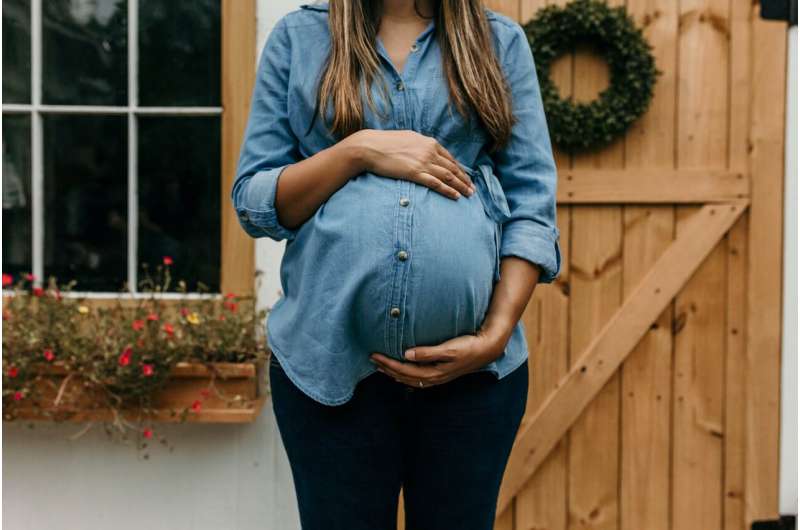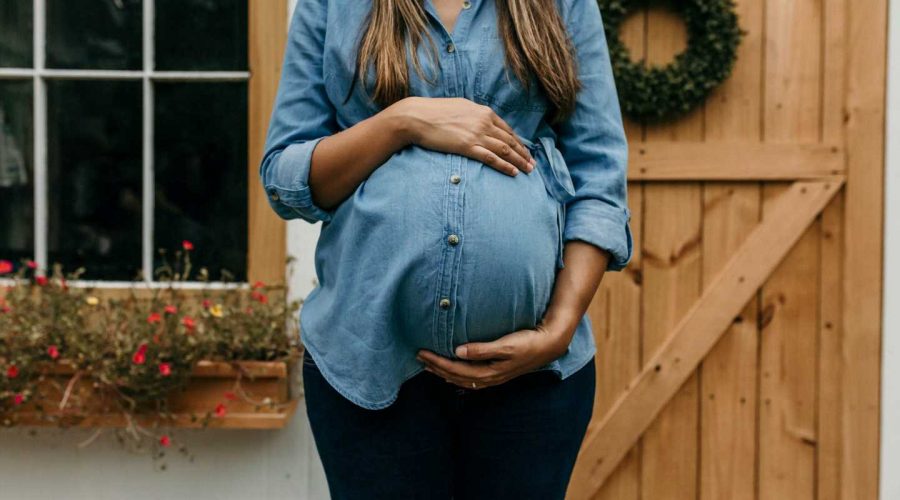Lack of knowledge led to COVID-19 vaccination hesitancy during pregnancy

When the COVID-19 vaccine rollout began, pregnant women hesitated to roll up a sleeve for a shot, according to a survey conducted by the University of California, Davis.
In the study, published in the journal Vaccine, a team of researchers surveyed 387 pregnant Californians to gather perceptions and reasons behind getting vaccinated against COVID-19. The web-based survey was conducted between December 2020 and January 2021, shortly after the first COVID-19 vaccines were given emergency use authorization in the United States.
More than half hesitant to get vaccinated
Survey results showed that 98.7% of participants were aware of the newly developed vaccine, but more than half were hesitant to be vaccinated, and 43% of respondents reported they planned to get the vaccine as soon as it was offered to them. The remaining 57% were hesitant. Of those, 27% responded that they would not receive the vaccine as soon as it was offered, and 30% were unsure.
The most common response for being hesitant was: “I don’t know enough about the vaccine.” Leigh Ann Simmons, professor of human ecology and the study’s lead author, said that because pregnant people were not included in initial vaccine trials, it was reasonable for these respondents to be hesitant about getting vaccinated.
“It was not surprising that not knowing enough about the vaccine was high on the list,” Simmons said. “The timing of the survey was right as the vaccine came out, and without studies of pregnant people, it makes sense that this concern existed.”
Decision-making during pregnancy
The survey also found that respondents trusted health care providers, including doctors and nurses, to provide them with information about the vaccine. Simmons said moving forward, now that pregnant women are starting to be included in vaccine trials, public health agencies and individual health care providers should work together to provide more vaccine information to patients. According to the Centers for Disease Control and Prevention, vaccine trials with people who are pregnant are now underway or planned.
“There’s a group of people who are hesitant, but it doesn’t mean they won’t get the vaccine,” she said. “If information about the vaccine is communicated in a way people can make sense of it for themselves, then they can make an informed decision for themselves and for their babies.”
The survey also found that essential worker status was associated with vaccine hesitancy. Results showed 56% of essential workers were hesitant, compared to 44% of nonessential workers who were hesitant.
Refusing the seasonal flu shot was also highly predictive of COVID-19 vaccination hesitancy. Findings showed 78 participants said they had not gotten—nor were they intending to receive—an influenza vaccine. Of those, 90% were also COVID-vaccine hesitant. However, of the remaining 287 participants who said they had either gotten, or intended to get, a flu shot, 46% were hesitant to receive the COVID-19 vaccine. Simmons suggested that it wasn’t that those individuals were hesitant to receive any vaccine while pregnant, but rather, hesitant about the COVID-19 vaccine specifically.
According to the study’s authors, terms like “vaccine hesitant” and “anti-vax” do not adequately portray or explain decisions related to getting vaccinated, because within this sample, hesitancy was mostly associated with the uncertainty of the vaccine’s effect on pregnancy and fetal development.
Source: Read Full Article
